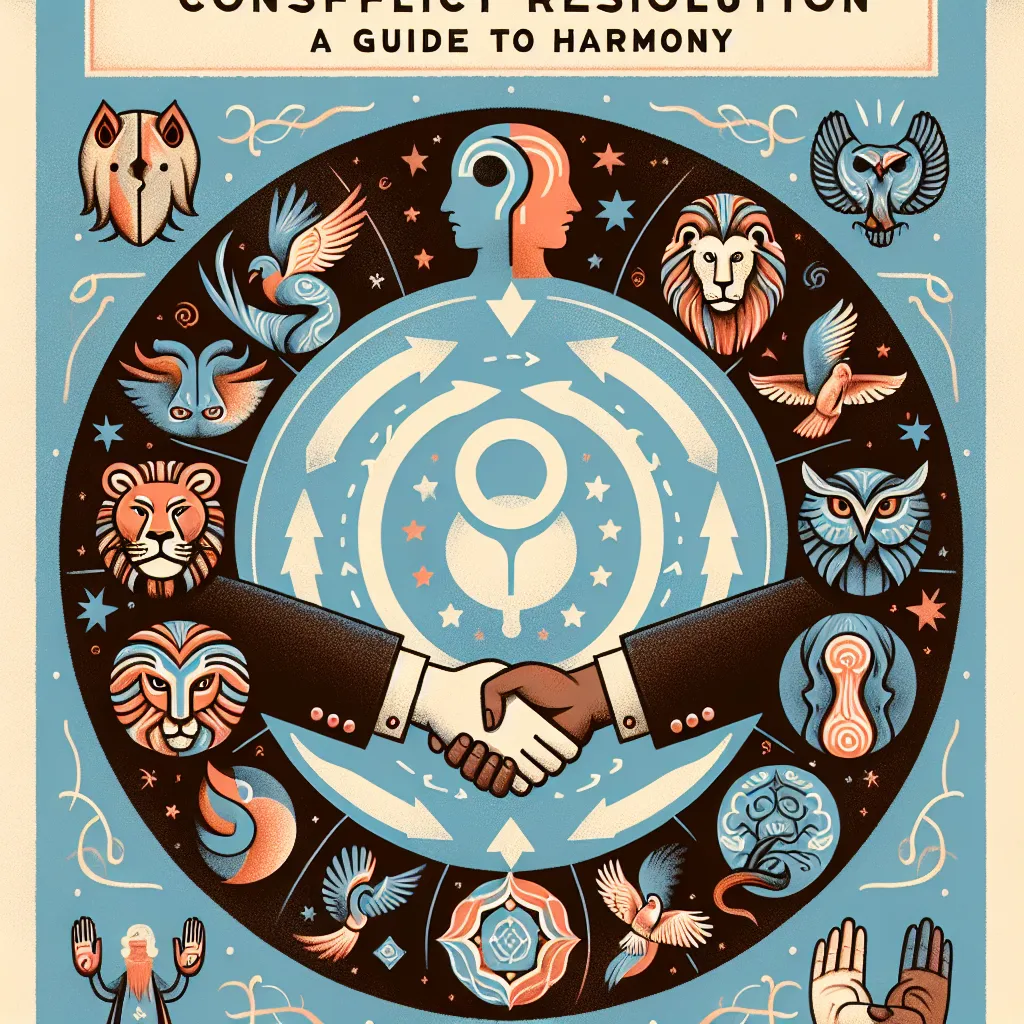Understanding different personality types is crucial in navigating the complexities of human relationships, especially when it comes to conflict resolution. The key to harmony lies not just in recognizing that conflicts are inevitable in our interactions with others, but in how we handle those disagreements. Whether it’s in the workplace, among friends, or within families, being aware of the various personality types and employing effective conflict resolution strategies can lead to more peaceful and productive outcomes.
Personality types can be categorized in various ways. One of the most popular frameworks is the Myers-Briggs Type Indicator (MBTI), which classifies personalities into 16 different types based on four dichotomies: Extraversion vs. Introversion, Sensing vs. Intuition, Thinking vs. Feeling, and Judging vs. Perceiving. Understanding these categories can provide insight into how different people perceive conflicts and the strategies they prefer when resolving them.
Extraversion vs. Introversion refers to where individuals draw their energy from; extroverts are energized by social interactions, while introverts prefer solitary activities to recharge. Sensing vs. Intuition addresses how individuals gather information; sensors focus on present realities, and intuitives look at the big picture and future possibilities. Thinking vs. Feeling contrasts how people make decisions; thinkers rely on logic and consistency, while feelers prioritize empathy and harmony. Finally, Judging vs. Perceiving delineates the structure in one’s life; judgers appreciate order and decisiveness, while perceivers are more flexible and adaptable.
In conflict resolution, each personality type has its strengths and weaknesses. For example, an Extraverted Thinker may be direct and unafraid to confront issues, while an introverted Feeler may avoid conflicts due to a dislike of disharmony. As such, when working towards conflict resolution, it is important for each party to recognize and respect these differences.
One effective way to resolve conflicts is to practice active listening. Active listening involves fully concentrating, understanding, and responding to what is being said, rather than simply hearing the message. This technique demonstrates respect and allows each party to feel heard and valued, irrespective of their personality type.
Another key strategy is to foster an environment of open communication. Encouragement of expression without judgment enables individuals to voice their concerns and perspectives without fear of negative repercussions. Providing such a space is particularly important for introverts who might otherwise feel overshadowed by extroverted personalities.
Conflict resolution also involves acknowledging emotions. While thinkers may prioritize logic over feelings, acknowledging the emotions involved in a conflict can lead to a more empathetic understanding from all parties. For feelers, recognizing that their emotions are understood and considered legitimate can greatly facilitate conflict resolution.
Furthermore, identifying common goals can be very helpful in resolving disputes. Even though the involved parties may have different ways of approaching a problem due to their personality differences, focusing on a mutual objective can create common ground and encourage cooperation.
Adopting a flexible mindset is also an essential component of resolving conflicts when dealing with varying personality types. Individuals who exhibit a strong preference for judging may need to practice more adaptability, while perceivers may need to recognize when a more structured approach is necessary. Flexibility can help to bridge gaps between different styles and expectations.
Compromise is the cornerstone of any conflict resolution process. Encouraging parties to give and take can often lead to solutions that satisfy everyone involved. While some personality types may find it easier to compromise than others, presenting it as a step towards mutual benefit can facilitate the process.
When conflicts arise between differing personality types, it’s also important to seek a third-party mediator if necessary. Someone who is impartial and can view the situation objectively can help navigate the conflict towards a peaceful conclusion.
Training and development in conflict resolution can significantly benefit any group, organization, or individual. Workshops and seminars that focus on understanding personality types and developing conflict resolution skills can build a foundation for better interpersonal relationships and a more harmonious environment.
Finally, practicing patience and maintaining a positive attitude during conflicts can go a long way. Conflicts are rarely resolved instantly, and those involved must be patient with the process and each other. A positive mindset can facilitate finding resolutions that are agreeable to all parties.
In conclusion, understanding personality types is integral to successful conflict resolution. From practicing active listening to seeking a mediator when necessary, various strategies can be employed to foster harmony. Harmonious conflict resolution requires an appreciation of the diversity in thinking and feeling, a willingness to communicate openly, and a commitment to finding common ground.
Adopting flexibility, patience, and a positive attitude can transform conflict from a negative experience into an opportunity for growth and understanding. By embracing these strategies, individuals and organizations will be better equipped to handle conflicts constructively, leading to stronger, more collaborative relationships. As we navigate through various interactions, it is the knowledge of personality types and the application of effective conflict resolution tactics that will guide us towards a path of lasting harmony.



Leave a Comment